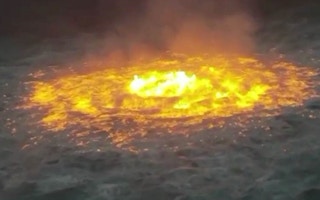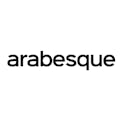Last Friday, the ocean was on fire. Yes, you read that correctly — a gas leak on an oil drilling platform operated by Mexican state-owned petroleum company Pemex set ablaze in the Gulf of Mexico, taking over five hours to extinguish. Despite the obvious environmental impact of this calamity, its media coverage was rather light with news mainly transpiring through internet communities and social media.
Remember the buzz around BP’s Deepwater Horizon? What’s different this time? Surely, if BP, Exxon or Shell were involved, we would have seen different headlines — shareholders would demand an independent probe, ESG scores would deteriorate, and the C-suite would face a series of uncomfortable TV interviews. But here’s the thing: Pemex is state-owned meaning the communication is rather different. For example, Mexico’s oil safety regulator “ASEA” insisted that the fire “did not generate any spill”…
It almost seems as though Pemex — like many other state-owned enterprises (SOE) — got its get-out-of-jail-free card. But should an affiliation with the state really allow a company to escape accountability and stakeholder scrutiny?
Untuk meneruskan membaca, hanya daftar - ia percuma!
- Dapatkan berita terkini, pekerjaan, acara dan banyak lagi dengan Surat Berita Mingguan kami dihantar kepada anda secara percuma.
- Akses repositori berita dan pandangan terbesar mengenai topik kemampanan.
- Anda boleh menerbitkan pekerjaan, acara, siaran akhbar dan laporan penyelidikan anda di sini juga!
Pelanggan surat berita tidak semestinya mempunyai akaun tapak web. Sila daftar percuma untuk meneruskan membaca!
We know where we stand, especially when considering SOEs significant impact on global sustainability efforts.
What does the data tell us?
There is a notion that the political motivation and reported corruption within the leadership atop SOEs often leads to poor management, but the data currently available surprisingly tells a very different story. According to Arabesque S-Ray data, companies with significant state ownership score highly on aggregate ESG and GC Scores. For instance, Russian energy company Gazprom scores a mighty 81/00* on the materiality-weighted ESG dimensions. Even from a sector-agnostic standpoint, the company is among the top 10%.
While data is never free of bias (think of the tilt towards large-cap companies in data availability) and you may find the above hard to believe, our research colleagues at Arabesque S-Ray are not alone when adding SOEs to the group of global sustainability leaders. Recent findings of a UN PRI study, in which ratings and scores of various ESG data providers were aggregated, show a similar conclusion: “Historically, state-owned firms still perform better in environmental issues, suggesting that state ownership promotes environmental engagement, rather than governments picking and keeping green companies and divesting polluting firms as political expedient.”
Only when one ventures below the surface of aggregate sustainability scores, the cracks of the polished sustainability image of SOEs are shown. Using Arabesque S-Ray’s Temperature Score to dive deeper into the topic of emissions data, two of the few listed SOEs, Gazprom and Saudi Aramco, are everything but aligned with the 2°C-targets set out by the Paris Agreement.
What can we do?
On the listed front, the above begs the question on the use of aggregate sustainability scores. What benefit do they bring if heavy polluters such as Gazprom are painted in the best sustainability colours? Are aggregate sustainability scores, with their underlying, highly complex calculation methodologies, counterintuitive when it comes to adding transparency to corporate behaviour? The emerging trend of highly specific, topical sustainability scores, combined with respective investment strategies, opens the door for us to be able to look beyond the surface of what an ESG-score tells us.
On the private front, things are a bit different. For instance, Pemex, mentioned in the above headline, has a total of $105bn in issued debt making the company a relatively significant issuer of emerging market debt. This consequently places the company in a position where investor concerns and pressure are not too dissimilar to those of listed companies. Fortunately, there is collaborative engagement on a private level carried out by initiatives like ClimateAction100+ (which is actively engaging with Pemex) to encourage state-level accountability. What’s your private markets specialist’s opinion on this? Let us know your thoughts.
Arabesque is a global group of financial technology companies offering sustainable investment, advisory, and data services through advanced ESG and AI capabilities.


















